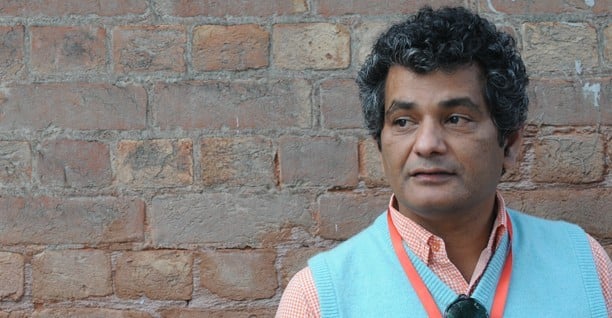

The News on Sunday: Nations tend to pick their heroes. How important are heroes for nation-building? What goes into the making of a hero?
Mohammed Hanif: I don’t know if heroes are important for nation building or not. All I know is that we have had too many heroes lately, we are fast running out of honours, medals, and clichés to bestow upon them. It seems you have to get gang raped, get shot in the head, or die at the hands of a state-employed torturer to become a hero. Why can’t we just have people who turn up for work? Why can’t we just stop thinking that we are god’s gift to this universe?
TNS: Why can’t we agree on our heroes -- Jinnah or Maududi, Hakimullah or Malala? And then, each side claims its hero defines the national narrative.
MH: I don’t think there are many nations which agree on their heroes. I don’t really think Jinnah is anyone’s hero. I think a lot of people in this country don’t even know who he was and the ones who know will never agree what he said let alone what he meant by what he said. I don’t think there are many people who are going to consider anybody a hero who says: get disciplined, work hard, stand united. Sounds like your PT teacher, doesn’t really inspire anyone. Now if someone comes along and says let’s fight to liberate the Ummah, let’s go and take over the world or die trying, there is more to life than office slavery, that is the kind of stuff we expect our heroes to say. And can the national press stop using the term national narrative? Any editor who can achieve that will be my hero.
TNS: In our country, the search for heroes is unending it seems. This is often done without understanding or discussing the society that needs such heroes. Is it not important to understand why did we need a Chaudhry Aslam-like figure in the first place?
MH: Everyone knows why we needed Ch Aslam. But the guy is dead, fighting, while many others have died saying no no, we don’t want to fight. He was also photogenic, and there was a lot of footage around. Also we don’t expect our heroes to go by the book, we don’t expect them to sit in offices and pay taxes.
TNS: There is also a clash between the politician and the religious heroes outside the political sphere, from Taliban to sectarian leadership to Tahirul Qadri, who seem to have prevailed. Where do these religious leaders draw their strength from?
MH: I think they draw their strength from God Himself. There is no clash between politicians and religious heroes because the politicians are trying to outdo religious and sectarian leaders. If you look at it closely, there are sectarian leaders vs other sectarian leaders. Someone like late Haq Nawaz Jhangvi can say that Maududiat is the biggest curse this country ever faced. No non-religious political leader is allowed to say that. In fact, even Pak army says that Maududi was the best thinker we ever had. It’s a fight not between seculars and religious people, it’s a fight between good Muslims vs better Muslims. And obviously, the best Muslims will win.
TNS: It seems that apart from a few national-political heroes, like Iqbal and Jinnah, who talked in communal terms, we draw our heroes largely from within the religious framework, like Mohammad bin Qasim and Mehmood Ghaznavi. Will we ever be able to question that?
MH: You can question all you want but our collective memory has been erased. Last year, I did a thought experiment while I was visiting half a dozen universities in Sindh. I asked students what did they know about Mohammed Bin Qasim? Everybody knows what we are supposed to know that besieged Muslim women cried for help, this seventeen-year old came and conquered and, hence, became the first Pakistani. Ask them what happened to him then? Everybody seemed to think that he ruled India and lived happily ever after. Nobody seemed to know that he had been recalled and executed by his commander-in-chief and, obviously, a better Muslim.
TNS: The status of army as hero is non-controversial it seems. Here we have an institution that’s a hero and we have no problems with it. How did that come about?
MH: Only someone who has never stepped out of a Punjab cantonment is likely to believe that army is a non-controversial hero. Try that line with someone in Turbat, or Dadu, or Wana. Okay let’s not go that far, walk into Mansoora and ask the person on duty if he considers Pak army a non-controversial hero?
TNS: What about writers who do get a lot of attention? What stops them from becoming heroes?
MH: We have lots of writer heroes. A whole generation worships Mustansar Hussain Tarar. Another generation finds all they need to know about life and after-life in Ashfaq Ahmed and Umaira Ahmed’s novels. Some literary types might even suggest that the hell we live in was conceived by another famous writer Qudrat ullah Shahab.